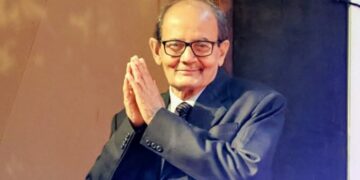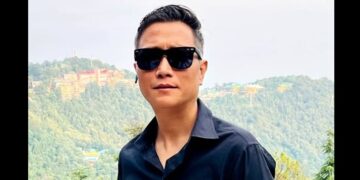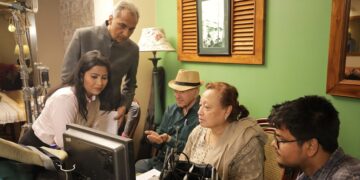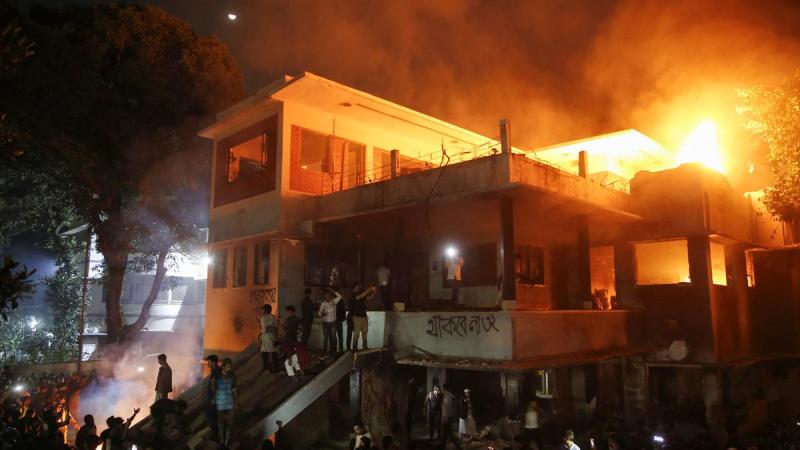Islamist radicals and elements opposed to Bangladesh’s secular legacy and unhappy with its emergence in 1971 have demolished the historic home of the country’s founding father Bangabandhu Sheikh Mujibur Rahman in Dhaka.
No move was made by the Yunus-led interim regime or the security forces to take action against the mob when it converged on the famous symbol of Bangladesh’s freedom on Tuesday night.
The violence, the intensity of it, has sent shock waves throughout the country and among the Bengali diaspora around the world.
Bangladesh is in free fall today. Six months into the overthrow of the Awami League government led by Sheikh Hasina, the country is yet to come to grips with the chaos unleashed in early August last year.
The interim government headed by Muhammad Yunus is at sea. Worse, it is not clear whether the government is at all in control of the situation.
The question is one of who wields power, Yunus and his council of advisors or the students who have been running riot since propelling him to office.
There then follows the next question: Is the interim government merely in office but not in power?
Politically, the Yunus regime has gathered too many things on its plate. Eleven reform commissions have been set up to correct what has been given out as flaws accumulating over the past many years.
To what extent the commissions have been able to prepare their reports and whether those reports will be ratified by a future elected parliament are queries in need of clear responses.
And yet any response will depend largely on the issue of when general elections will take place in the country.
The interim government has given out a broad idea of when the elections might take place, between the end of this year and early the next.
That has not satisfied the Bangladesh Nationalist Party (BNP), which would like the vote to take place around July-August this year.
There has been no response from the Yunus regime to that demand. Meanwhile, reports have been rife that the political and administrative machinery has subtly been passing into the control of the Jamaat-e-Islami, which has said nothing about the elections.
The irony is that where in the past the Jamaat was the junior partner of the BNP in power, today it has obviously moved ahead of the BNP. That too has the BNP worried.
Besides, it has not yet been possible for the acting chairman of the BNP, the exiled Tareque Rahman, to return to Bangladesh from Britain owing to the cases yet pending against him.
A huge factor in Bangladesh’s politics at present relates to the Awami League. In recent days and weeks, young followers have been organising scattered demonstrations calling for Yunus’ resignation.
These demonstrations, considering that the senior party leadership is absent in the country and Sheikh Hasina is abroad, considering too that the party is in disarray, are nevertheless a sign that the party matters in Bangladesh’s politics.
It is a situation that has many in the interim administration and in the anti-Awami League camp worried, to the point where the police have been instructed to detain any Awami League activist found distributing leaflets relating to upcoming party programmes.
Interestingly, young followers of the party arrested by the police have been observed raising loud nationalist slogans of Joi Bangla as they were being carried off to prison.
In these past few days, obscenity resorted to by individuals holding important positions in the interim government has drawn countrywide criticism.
At the inauguration of the annual Ekushey Book Fair at Bangla Academy on the first day of February, a dustbin with the image of Sheikh Hasina was placed on display and a functionary of the government was photographed dumping waste into it.
Harsh public criticism swiftly led to the removal of the bin, but the damage had been done. And that was not the only embarrassment for the interim regime.
A list of winners of literary awards for the year 2024 was published by the Bangla Academy. However, clearly owing to pressure from the votaries of the regime, the list was withdrawn.
When a few days later a new list was issued, the names of three individuals mentioned in the original list were missing.
The three individuals are noted for their adherence to the values of the 1971 War of Liberation.
Moves are afoot to organise what is being referred to as a king’s party. Some retired military officers are reportedly involved in the process.
There are reports as well of a number of pro-Yunus students becoming part of the proposed king’s party.
Meanwhile, fears of the Awami League’s eventual resurgence have prompted a good number of individuals to voice the threat that the party will not be allowed to take part in the elections.
There are some, including the chief of the Jamaat, who would like Awami League politicians to be tried for what they call genocide perpetrated in July-August.
Unabashedly the Jamaat chief carefully avoids the issue of the Jamaat’s involvement, in collaboration with the occupation Pakistan army, in the murder of three million Bengalis in 1971.
Meanwhile, the rule of law is conspicuous by its absence in the country. Political figures and journalists arrested since August and clamped with baseless charges of murder have been refused bail.
The conditions in which they have been kept in incarceration are deplorable and despite concerns by organisations overseas, no steps have been taken to ensure that justice is done to them.
Media organisations in Bangladesh, despite Yunus’ bland assurance that journalists are free to express themselves, are afraid to carry reports or editorial comments critical of the interim regime.
At another end, an organised campaign to discredit the family of Sheikh Hasina through a systematic publication of reports of their alleged financial malfeasance is regularly being highlighted by newspapers and the country’s ubiquitous television channels.
On the diplomatic front, relations with India have hit rock bottom, while the interim regime has been making attempts to develop closer links with Pakistan, successive governments of which have never seen any reason to offer any apologies to Bengalis for the genocide perpetrated by their soldiers in 1971.
Both Bangladesh and Pakistan have made it easier for each other’s citizens to come by visas for visits to Dhaka and Islamabad, in that order.
On a larger scale, the return of Donald Trump to the White House has many worried owing to his pre-election condemnation of anti-Hindu violence in Bangladesh.
There is apprehension that individuals like Tulsi Gabbard, a member of the Hindu organisation Iskon who could be confirmed by the Senate as US Director of Intelligence, could influence Trump into bringing pressure to bear on the Yunus regime on the detention of Prabhu Chinmoy Das, a Hindu cleric earlier linked to Iskon.
The destruction of Bangabandhu’s home introduces a whole new sinister element in Bangladesh’s volatile politics.
ALSO READ: Bangladesh: Awami League needs to regain centre stage
The nation’s history is under grievous assault. Whether the vandalism resorted to on Tuesday drives fear into the political parties now engaged in open politics, the better to warn them that they had to watch out before demanding quick elections, is something to observe.
There is little question that Bangladesh’s people are in a state of misery today. They see the country passing into the hands of elements that have had no loyalty to the values, which led the country to freedom. It is fascism the Bengali nation is up against.















